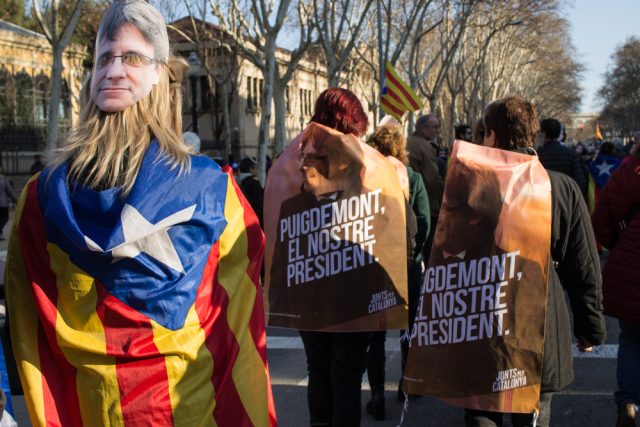
The prosecutors of the process have appealed last Tuesday, January 17, the order issued by Judge Pablo Llarena. This would ask for the prosecution of the accused rebels: the former president of the autonomous community of Catalonia, Carles Puigdemont, and the former ministers Toni Comin and Clara Ponsati, for the new crime of aggravated public disorder instead of disobedience. In this way, the Spanish judge would have adapted the Euro ordinance to the new Penal Code.
The prosecutors ask Llarena to include in the arrest and imprisonment warrants the criminal type of public disorder with respect to Puigdemont, Comin and Ponsati, in that it restricts the future prosecution for some of the facts collected in the indictment in the event that they are delivered. The prosecutors allege that the facts would be treated as a crime of public disorder, since all the characteristics of these articles are met: as group action, intent to act against public peace, breach of court orders and carrying out violent and intimidating acts, in addition to the obstruction of public roads with personal risk or invasion of buildings altering their essential services.
In this context, the gap dividing the pro-independence supporters has widened even further. Five years after the proclamation of the independence of Catalonia and its immediate dissolution, part of the pro-independence movement is experiencing a palpable disillusionment that leads the very supporters of independence to confront each other. Oriol Junqueras himself, leader of the main separatist socialist separatist party in Catalonia during October 1, 2017, and having spent time in prison for such an event, was received last January 19 booed at a popular pro-independence rally. Some of these demonstrators went so far as to show him banners of former president Carles Puigdemont and clamor for his return to prison.
This contrast between the favorites of the masses and those repudiated by them finds its explanation in how each one faces his legal situation. In this sense, Puigdemont warned that he would not want to return to Spain until the General Court of the European Union guaranteed him the immunity that corresponds to him as an MEP. In this way, the pro-independence movement would try to win the legal battle against Spain by getting Europe to end up agreeing with them. On the other hand, Oriol Junqueras together with other leaders of the “process” such as Raul Romeva or Dolors Bassa would be seeking acquittal before the Supreme Court.
An attrition waiting for Sánchez and Brussels.
In this way, an increasingly marked division in the independence movement is evident. Increasingly, independentism shows a growing attrition. Some children of the revolution are devoured by the revolution itself, while others try to retake the reins of the mobilizations. In this context of separatist dismemberment, only two external factors can provide oxygen to the leaders who still hold the favor of the masses. On the one hand, the Spanish government, which has been in charge of repealing the crime of sedition and has led some of these leaders to seek reduced sentences in this new penal modification. The current socialist government has depended during the last four years on the support of the independentistas constantly. A few months before the general elections, the current executive has only a few months to give a favorable treatment to its nationalist partners. On the other hand, the European Union, which is in fact the strategic objective of part of the pro-independence leaders. In this way, the government of Spain and the Brussels administration are the only factors that could boost independence again, and only the respect for the nation and its values of sovereignty and unity can face these challenges of the past that Spaniards do not want to face again.



 Subscribe
Subscribe